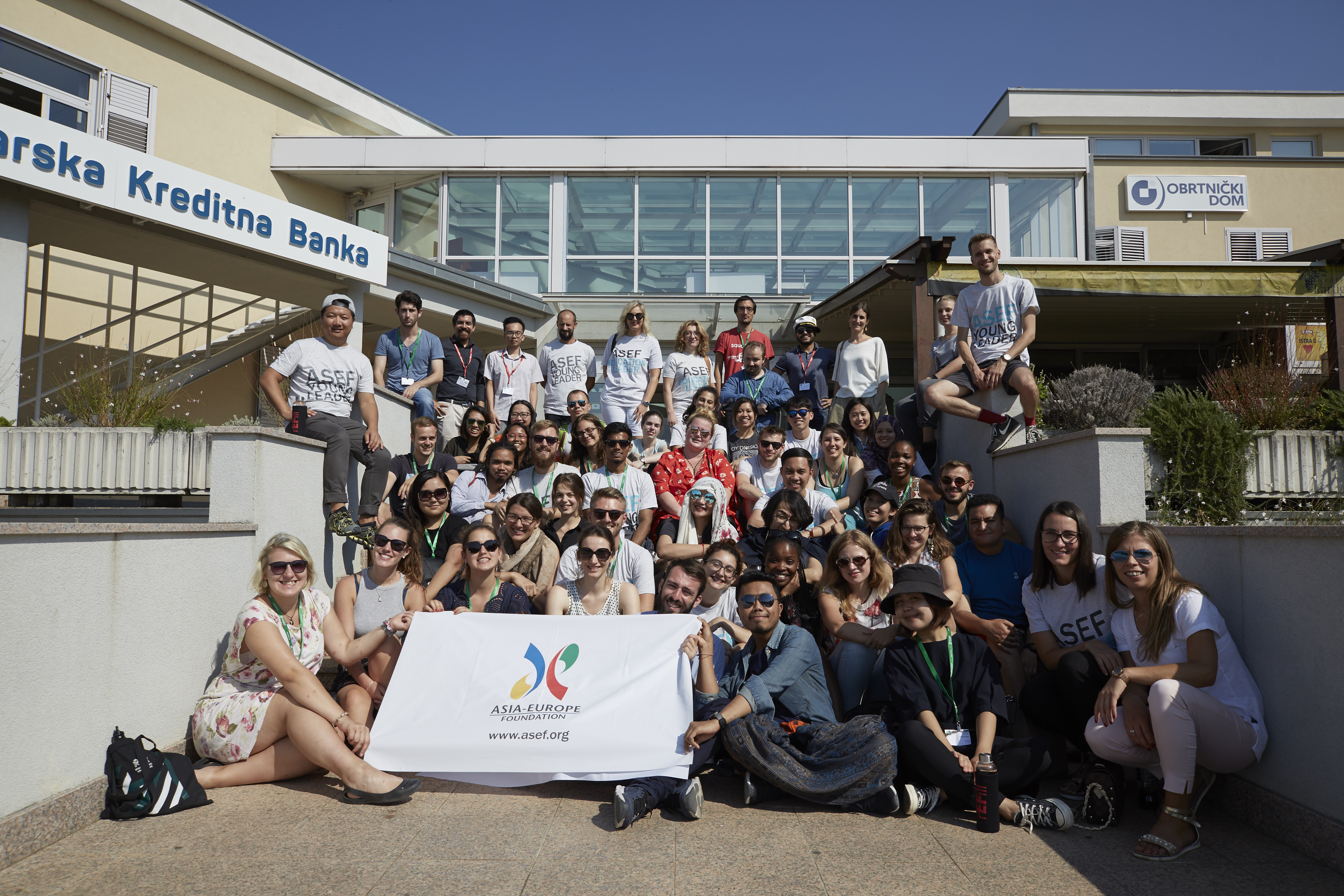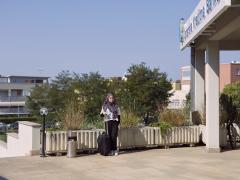You are here
The Road to A Sustainable Lifestyle - An Interview with Nur' Nazzatul Aqilah binti Dzulkarnaen – participant of the 22nd Asia-Europe Foundation (ASEDSU22), Slovenia & Croatia
Q: What did you do on the programme? How was the experience?
A: I was one of the 48 participants from 47 countries who were selected to take part in the 22nd Asia-Europe Foundation (ASEFSU22) programme. The theme for this year was Sustainable Development. I went through 3 stages of the programme which are:
1. Online Preparatory phase: A preparation phase that introduces the topic and concept of the whole program to the participants through online webinars, additional reading materials, and conversation through email.
2. On-Site Programme: A 2-week program that took place in Slovenia and Croatia in September 2018.
3. Follow-Up phase: A 4-week ongoing feedback session about the whole experience of the program.
The on-site program took place in five towns and cities across Slovenia (Ljubljana, Portorož, and Piran) and Croatia (Poreč, and Zaghreb). It was attended by a total of 48 participants from 47 countries across Europe and Asia, lead by 4 organisers in partnership with Hosteling International (HI). During the 10-days programme, I, along with all the other participants, attended lectures and workshops that were hosted by different professional bodies in regards to the theme of ASEFSU22 this year.
In addition, we also had the chance to explore Slovenia and Croatia from the eyes of the locals through a guided tour provided by the organisers. The main project of the program was to come out with a proposal in a form of a case study to answer the question of "How Can Hostelling International Achieve Completely Disposable Plastic-free Hostels?" Along with 5 other team members, we worked on the proposal and presented our idea on the last day of the programme itself.
Q: What was the selection process of the programme?
The selection process starts with applying through their online application, and ASEF will email their shortlisted participants to schedule for a Skype interview. Afterwards, they will then again email the shortlisted participants stating if they were chosen to take part in the program or not. Once chosen, ASEF advised successful candidates to go for the next step such as looking into flight tickets and visa requirements. I was selected as a representative of my country, Brunei Darussalam – being an undergraduate student who is studying in the field of tourism which includes sustainable tourism has inspired my interest to explore this programme and learn more about sustainability across the globe.
Q: What did you learn most from your trip?
The programme was attended by so many different people coming from different backgrounds as well as different professions, I learnt something new every day. Talking to different people every day gave me the chance to further broaden my mind regarding the issues of the world. In relation to the programme itself, it was fascinating to see different views and opinions from different people that I could hardly think about. The programme as a whole allowed me to see the world from a different perspective, in which the world today is indeed polluted with waste and corruption. We, as future leaders of the world, have the responsibility to change and make the world a better place. The programme served as an initiative to change the minds of the people today to live on a healthy planet.
This program also allowed me to exchange ideas with other participants, both academically and personally.
Q: How did the trip change you thereafter?
Due to the theme being sustainable development, one of the challenging tasks given to participants was to live sustainably by reducing single-use plastic usage along with other plastic-related items for the whole month of September. Before the trip, we were advised to bring our own water bottles and use other substitutes instead of using single-use plastics. Therefore, during the whole trip, I have lived sustainably by not using single-use plastics which includes bringing my own water bottle. In addition to the lectures and workshops, the trip was an eye-opener to realizing how harmful plastic is to the environment. Coming back from the trip has definitely changed my habits towards plastic usage by opting for re-usable bags for shopping, using water bottles to drink from, reducing the use of paper by going digital in my studies unless there is a need for physical submission, and more. To date, although the programme has ended a few months ago, I am still trying to reduce my plastic and paper usage as much as possible.
Q: What are your advice to APU students after undergoing this trip?
My advice to APU students and everyone, in general, is to understand the harmful effect of plastics. APU provides water dispensers in the university for free, students should take advantage of that to refill their own water bottles instead of buying plastic water bottles which will cost you much more than investing in a water bottle. We are the generation that is going to live on this planet, therefore, we need to sustain it as much as possible. Let's all join hands together to save our home.




